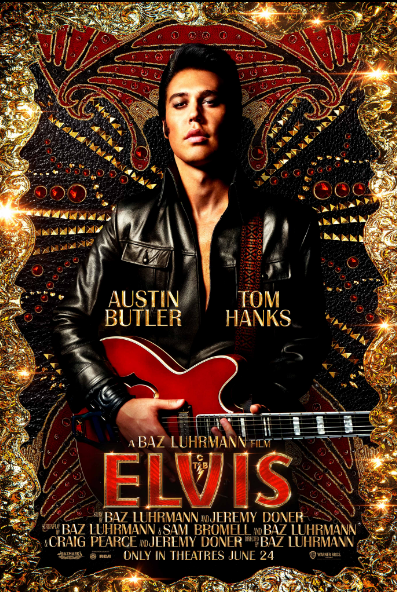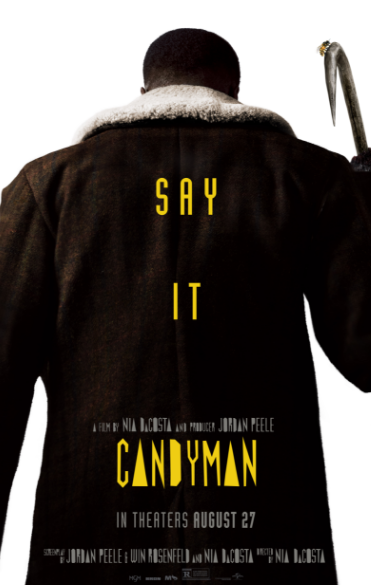If you go into Elvis expecting a by-the-numbers biopic of America’s greatest entertainer, you will no doubt be disappointed. It’s less a conventional biopic and more a dark, melancholic examination of mental and psychological abuse. It's about how the abuser will use any tool at their disposal to control the narrative and insert themselves into it. How the cycle of abuse begins, is perpetrated, threatens to curtail, and then starts back up again. It is the story of Col. Tom Parker (Tom Hanks) and Elvis Presley (Austin Butler).
Parker is a carnival huckster who knows how to sell a show. When he witnesses firsthand the reaction to Elvis’ performance at a county fair, he sees dollar signs. Parker is able to move Elvis out of the county fair circuit and soon makes him the biggest pop culture artist of all time. It doesn’t take long before the Parker’s control pushes Elvis to rebel, but somehow, he always winds up crawling back into the Colonel’s clutches.
Elvis is a tragedy. It is about how a good-natured mama’s boy with unfathomable talent is commoditized, monetized, and controlled by a shrewd businessman. It is the story of American business, and the way businessmen exploit their workers past the point of exhaustion. It is about the American Dream and how the dreamers often become distracted, manipulated, and just plain taken advantage of along the way.
Many will want a straightforward Elvis movie. I get that. This is not it. What is amazing about the film is how firm of a grasp the Colonel has on the story. He is in control of the narrative from the very first frame, manipulating the audience, just as he manipulated The King. Elvis goes along with the Colonel’s shady business practices, mostly to provide for his family, but even then, he eventually tires of the Colonel and tries to wriggle out of his iron grip.
What is fascinating about the film, is that when Elvis temporarily defies the Colonel, the movie soars and becomes an intoxicatingly dizzying spectacle like only Baz Luhrmann could make. Like when Elvis goes behind the Colonel’s back to make his comeback television special. We see Elvis totally in his element without the Colonel’s meddling, and he is firing on all creative cylinders. The moment when he ignores Parker’s mandate for an old-timey Christmas number to deliver the passionate “If I Can Dream” is especially triumphant. In these moments, Elvis (both the movie and the man) literally and figuratively finds his voice, and we can see what he could’ve accomplished if he wasn’t shackled to the sleazy Colonel.
The Colonel’s manipulations don’t stop with Elvis. In the end, when he laments The King’s death, he says it wasn’t the heart attack or the pills that killed him, but “His love for YOU!” He’s projecting the blame of Elvis’ descent into drugs not on himself, but the audience… US. I don’t think I’ve ever seen a movie that blamed the death of its title character on the viewer like that before. It just shows the lengths Parker will go to in order to make himself out the be the hero. He has his claws in the audience just as much as he does Elvis.
This is a special movie. One of the best of the year. It has all the bombast and fun an Elvis film directed by Luhrmann could have. However, it’s the dark dynamic between the Colonel and Elvis that gives it so much power. I can understand why people won’t like it. If you want a safe Elvis bio, there are plenty of them out there. (The John Carpenter one is probably the best.) If you want something braver, riskier, and darker, this will be the way to go. It is bound to leave the viewer all shook up.






